If you’re like me, you didn’t start out intending to be a fundraiser.
Some people start out in the Peace Corps. Some were sentenced to community service. Some began in volunteering. I think it’s fair to say that most of us fell into fundraising by chance. I did. These days, I think of my “falling into fundraising” as fate. Sheer luck. Kismet…
So how the heck did I end up here? Over 16 years ago I stumbled into fundraising when I transitioned from a regional grant-making foundation to my first development director job. You see, I’d had the desire to make a difference all of my life, but floundered around figuring it out. I knew myself, and I knew that I was too thin-skinned for social work and other kinds occupations that would really put me in the thick of things.
So, with me being me, fundraising turned out to be the perfect career path. And, blessed with a background in sales, marketing, and even tech, I experienced crazy success right out the gate. That, along with some moxy, persistence, and other good stuff helped me create some amazing change in a relatively short period of time.
What did I make happen?
In less than two years into my first job:
- I increased foundation grant funding by more than 90%,
- developed a regular column in our weekly community newspaper, single-handedly learned coding and launched our website (complete with online giving back in — yes — 2001!),
- spearheaded the founding of a nonprofit roundtable with the local Chamber of Commerce,
- launched a local health initiative, held several successful community events,
- and established relationships with the Rotary and area businesses. Whew.
And guess what else? Our organization’s once disastrous membership campaign had grown by huge leaps and bounds.
The icing on the cake was all the love I had for the position and everything about it. I loved my coworkers, I loved our volunteers, and I loved my work. It was the perfect scenario, and it was mine.
I loved my job. And I’d finally found my passion!
But after two short years, I walked out the door.
Why did I leave? And what can you learn from my departure from what remains, to this day, one of my favorite jobs?
For two years, I experienced virtual autonomy. You see, our Executive Director was no fundraiser – and he was happy to defer the work . Our board of directors asked questions and were thoughtful and attentive during meetings – but as long as I achieved results, they didn’t interfere.
So what went wrong?
A new executive director arrived on the scene.
One who didn’t take too kindly to the P.S.s in my annual appeal letters or the handwritten notes that I scribbled into the margins. Someone who didn’t understand the concept of persuasive copy or the art of communicating directly with the donor. One who insisted on eliminating contractions, along with any type of writing that she termed “salesy.” A woman who was all up in my face about the extra costs of segmenting and personalizing our mailings and wanted to know why one “dear friend” letter couldn’t suffice for all of them.
Since I’d already picked up a few consulting clients of my own, I boxed up my office, said sayonara, and walked. But my head was held high. I’d enjoyed the experience, I’d learned a lot, and I’d met people with whom I’m still in contact with today.
I suspect what happened around me isn’t an isolated occurrence. In fact, it’s probably often the case with fundraising professionals, particularly in small shops, where limited staff is overworked, underpaid, and suffering serious burnout.
My next confession may surprise you, though. The new ED didn’t “make” me leave. The truth is, I probably would have left even if she’d never come onto the scene. Regardless of how much we love the work that we do in fundraising, we can only do it all for so long before we feel ourselves cracking under the pressure. And while I loved the utter autonomy of my job, I was wrong in thinking that I could ‘do it all’.
In the years that have followed, I’ve developed a deeper understanding of the the importance of having everyone on board, working together. The life and culture of the organization depends on it. As a consultant, I’ve been brought on for one-hour board trainings where it quickly became apparent to me that the organization lacked a consistent culture of philanthropy, and the board was warily tapped for fundraising once or twice a year. Sometimes, I’ve thought back to my position and how I under-utilized their board. I’ve learned from that mistake.
Have you ever been hired by an organization as their fifth development director in two years? I have. I know it all too well, and maybe you do, too: you’re expected to write that million dollar grant that’s going to save everyone’s ass, or miraculously acquire a major gift from a donor who’s been ignored for five years straight, or grab the attention of that ultra-rich and famous philanthropist whose connection to your organization is tenuous at best. The expectations are stacked high, and so is the general idea that fundraising is somehow dirty and the rest of the organization is glad that you’re on board so they can wash their hands of it. History is doomed to repeat itself. It’s a vicious cycle.
Frankly, I see it in virtually every single organization where fundraising isn’t viewed as an integral part of the mission. It’s at the heart of the matter — your core. Time and time again, I’ve witnessed how this kind of disconnect prevents organizations from truly excelling in fundraising.
My advice to my younger self?
 I would have understood that everyone in our organization plays a crucial role in fundraising success and that I was not built to do it all by myself. I would have involved those board members and gotten them revved up and excited to fundraise — along with everyone else. I would have brought our volunteers and board and, yes, even the executive director. Of course, the executive director! I’d have not only alleviated some of my stress, but I would have set the rest of the organization on the path to long-term, sustainable fundraising success.
I would have understood that everyone in our organization plays a crucial role in fundraising success and that I was not built to do it all by myself. I would have involved those board members and gotten them revved up and excited to fundraise — along with everyone else. I would have brought our volunteers and board and, yes, even the executive director. Of course, the executive director! I’d have not only alleviated some of my stress, but I would have set the rest of the organization on the path to long-term, sustainable fundraising success.
That’s what I learned — and then some. I have no regrets, and neither should you. Without this invaluable experience, I probably wouldn’t be where I am today.
So I’ll leave you with this: understand completely, and respect, that everyone in your organization plays a crucial role in fundraising success. You need every member of your team on board because that collective passion, enthusiasm, and drive is essential to your fundraising success. When each of the machine’s parts are running at optimal capacity, the machine runs smoothly. It knows how to handle the bumps in the road.
Because here’s the thing: if you’re not committed to funding your mission, you’re not committed to your mission, period.
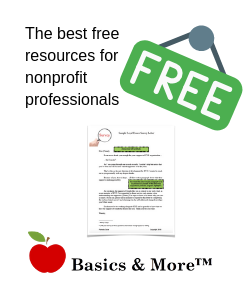
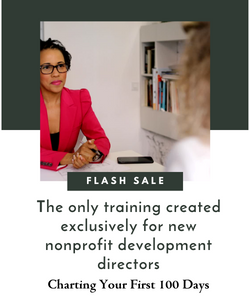
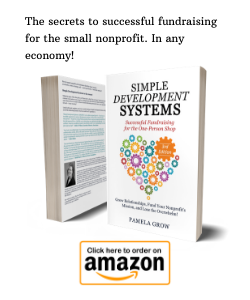
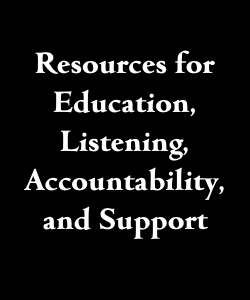
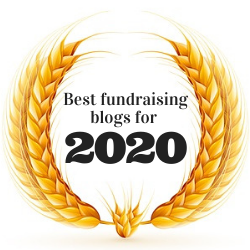


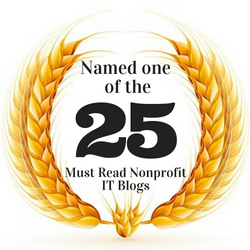




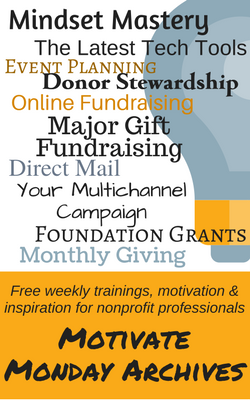




 I can’t wait to meet with you personally.
I can’t wait to meet with you personally.
Comments on this entry are closed.